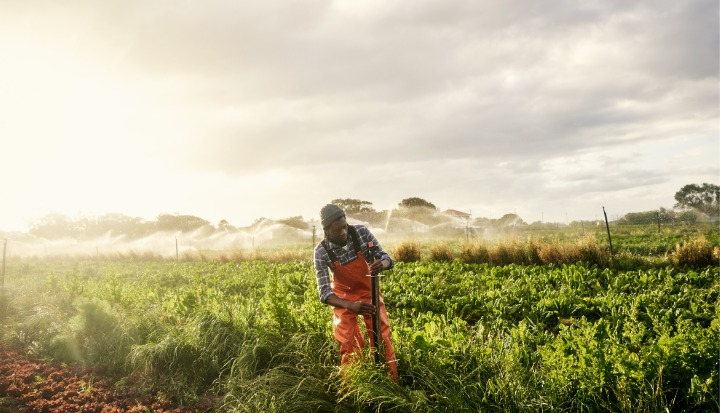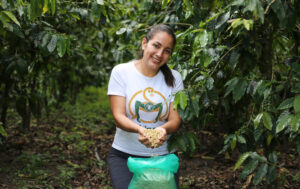I (…a Business Fights Poverty ‘collaborator’ from the development space) joined the recent community event to discuss ‘actions for 2025’ because I was keen to see how far up the agenda the commitment to climate and environmental issues would sit (in the face of growing skepticism from certain quarters). I was inspired to hear that most businesses will likely hold their space…and that the global trend toward sustainability and addressing climate change is intensifying. Phew!
Ok, admittedly, it will require strategic adaptation, clear communication, and a long-term perspective (a lot of grit and hard work not just from businesses, but also donors and development agencies). And there’s lots of donor-funded initiatives out there that are working with the private sector to address the challenges…but using businesses to address donor-driven goals can fall flat on its face if the goals are not aligned with business incentives (companies won’t own and drive change if there’s nothing in it for them). In short, it’s how we work together that counts.
That’s where the Market Systems Development (MSD) approach can come in handy. Where development agencies act in a facilitative way to strengthen capacity in a system, so positive things continue to exist after the donor funded work has ended (building on the capacity and incentives of system-based actors to behave differently because it makes sense for them to do so…over the long term).
You likely perused this approach in a recent BFP blog exploring MSD’s potential to empower smallholders, drive greener growth, and support equitable climate action (read…it’s worth a read!). This blog talks about strengthening relationships among local players to develop the whole system, so everyone benefits (MSD is about analysing things together, co creating solutions that actors buy into and implementing joint action to advance the entire system).
Businesses may have a desire to contribute to mitigating climate change and preserving natural resources, but how can MSD really help us make it happen? Well, SMEs in emerging economies don’t always have the information, resources and support they require to define a business case for doing things differently or to appropriately re-engineer their business models (there are often limited, weak – or no – viable support services being offered in the market to help SMEs move their needle). So initiatives such as FCDO’s Commercial Agriculture for Smallholders and Agribusinesses (CASA) programme are facilitating local market-based providers to do the work, without directly supporting the SMEs themselves (MSD is all about the ‘how’).
Let’s take an example. SMEs don’t always know the importance of environmental, social, and governance (ESG) practices and the benefits, they lack the skills to adopt and implement ESG strategies, and struggle to access necessary funding. So, the CASA team helps SMEs to access relevant and affordable support to define an ESG business case and action plan, and obtain the relevant skills and investment required to move forward. We do this by strengthening local business development service (BDS) providers to design, test and deliver commercial demand-led services to SMEs (CASA works as an independent and temporary systems facilitator to catalyse change). We are supporting the adoption and implementation of ESG strategies by numerous lead SMEs in Nepal, Malawi, Rwanda and Ethiopia by building capacity for ESG-related service delivery, including financing. Read more about partnering with local providers in our learning paper on 25***************@sw**********.org%257Ca1e63106efa54501ed4708dd45165495%257C3c3f86aba5ee402e8dfa4d75dbabb024%257C0%257C0%257C638742684697737285%257CUnknown%257CTWFpbGZsb3d8eyJFbXB0eU1hcGkiOnRydWUsIlYiOiIwLjAuMDAwMCIsIlAiOiJXaW4zMiIsIkFOIjoiTWFpbCIsIldUIjoyfQ==%257C0%257C%257C%257C&sdata=sZKXyog/HfkeRtPEq4vwaFQKfnGtVd4EWRR9tx8hP+k=&reserved=0″>partnering with agri-SMEs for development impact (its‘s full of victories as well as pit falls…check out our partnership with RUDK in Nepal, a local energy auditing service provider). If we want to enable SMEs to embed environmental practices into their business models, then we must ensure that things happen in a sustainable way (MSD is a way of thinking about how change happens, for the long run).
But we don’t want to just create a single viable system model on a small scale, we want to demonstrate models that can be expanded and eventually reach lots of SMEs. We ultimately want lots of BDS providers delivering lots of diversified ESG services, competitively (MSD is not just focused on durability but also on reaching scale… donors also want ‘bang for the buck’). This means capturing and sharing the learning and evidence from a successful ‘pilot’ (MSD is about demonstrating new ways of doing things and then shouting about the success for others to see, hear and copy).
In CASA, we can see that systems facilitation is starting to benefit BDS providers as they get better at researching demand, and testing, adapting and marketing their support services (they are developing and offering demand-led services that SMEs are willing to pay for). In turn, accessing and applying the ESG related services is leading to good things for the SMEs (systems development takes time…MSD is a process not an event). We are seeing more businesses ‘investing’ in ESG, from adopting sustainable supply chain practices and appropriate technologies to creating eco-friendly products and packaging (aligning incentives – cost savings, market growth, compliance, improved reputation and access to funding – fuels business growth).
Such ESG initiatives compliment wider facilitative support to partner SMEs to adopt inclusive and greener business models, attract investment and grow their business (CASA’s MSD approach enables SMEs to create opportunities for local producers, suppliers, employees and consumers). Read more about how we promote adaptation, resilience, and mitigation in 25***************@sw**********.org%257Ca1e63106efa54501ed4708dd45165495%257C3c3f86aba5ee402e8dfa4d75dbabb024%257C0%257C0%257C638742684697686069%257CUnknown%257CTWFpbGZsb3d8eyJFbXB0eU1hcGkiOnRydWUsIlYiOiIwLjAuMDAwMCIsIlAiOiJXaW4zMiIsIkFOIjoiTWFpbCIsIldUIjoyfQ==%257C0%257C%257C%257C&sdata=vAZJ1eDLiPz+VGdImf2uCY+p88gAngnJoXyw0g84/Uk=&reserved=0″>this review of our climate work (we can successfully help lots of businesses to adjust, survive and recover if we embrace viability and scalability).
So, as the demand for sustainable and replicable solutions intensifies, businesses will come out stronger if they embrace systems-based approaches together with development agencies and align growth objectives with environmental goals (climate action is an opportunity for business to unlock benefits and significantly support development goals).
Let’s support businesses to hold their space and keep driving the green transition (and not withdraw in the face of that skepticism from certain quarters).









